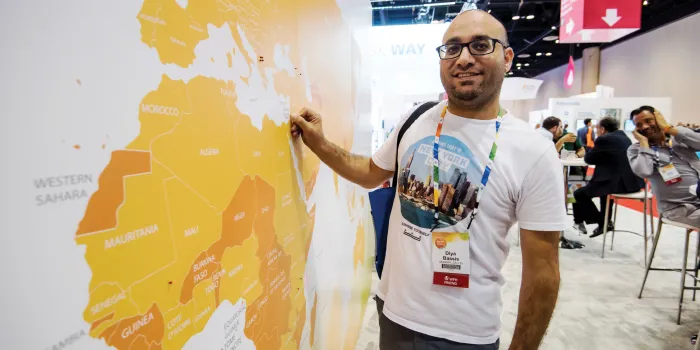“The threat to the life of just one hemophiliac would be sufficient reason for us to travel to this meeting. We are here, however, to help the hundreds of thousands of hemophiliacs by adding another organization which can be instrumental, in liaison with national societies.” These words by Frank Schnabel, the founder of the World Federation of Hemophilia (WFH), opened the first WFH World Congress on June 25, 1963, in Copenhagen, Denmark.
Schnabel’s statement is still meaningful today. Since the beginning, the WFH World Congress has combined community and science to support people affected by bleeding disorders. From May 20–24 thousands will gather in Glasgow, Scotland, for the WFH 2018 World Congress to learn about the latest scientific developments in the field and to network with peers.
Bringing the Community Together
At the WFH Congress, participants play an active part in discussions that will impact the future of the bleeding disorders community and help the WFH develop programs that make a difference.
The Congress medical program has something for everyone, including physicians, healthcare providers and regulators. The multidisciplinary program incorporates a variety of sessions, especially for patients and WFH national member organizations. By attending the Congress, participants will have a chance to learn firsthand about research impacting our community today.
The program will cover a range of topics (see “2018 Congress program at a glance,” below) and features a number of professional tracks in the areas of dental, nursing, psychosocial, musculoskeletal and laboratory science.
2018 Congress program at a glance
Plenaries and other sessions that await participants include:
General plenary
• Implementation of new structured research strategies for inhibitors [Steven Pipe]
Multidisciplinary topic
• Voices of women: New challenges, different visions
Medical plenary
• Considerations when switching patients from established standard replacement therapy to extended half-life or emerging treatments [John Pasi]
• Optimizing bleed prevention: Womb to tomb [Amy Shapiro]
Medical session
• von Willebrand disease: Clinical conundrums
• Gene therapy: Measuring benefit and defining risk
The WFH will also be offering a new way for attendees to network using the power of technology: WFH Connect. During the Congress, anyone will be able to easily get in touch with other participants by setting up an online profile on WFH Connect. Congress attendees will then be able to list their knowledge-sharing offers and requests for knowledge and set up meetings with other people interested in networking. A reception desk will ensure participants can find each other onsite.
For more information on plenary sessions and keynote speakers, and to register for the WFH
2018 World Congress in Glasgow, visit: wfh.org/congress/en/home

